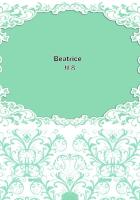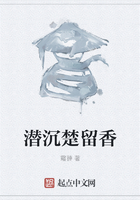The possibility of purely human sentiments in our intercourse with other human beings has nowadays been sufficiently curtailed by the society in which we must live, which is based upon class antagonism and class rule. We have no reason to curtail it still more by exalting these sentiments to a religion. And similarly the understanding of the great historical class struggles has already been sufficiently obscured by current historiography, particularly in Germany, so that there is also no need for us to make such an understanding totally impossible by transforming the history of these struggles into a mere appendix of ecclesiastical history.
Already here it becomes evident how far today we have moved beyond Feuerbach.
His "finest" passages in glorification of his new religion of love are totally unreadable today.
The only religion which Feuerbach examines seriously is Christianity, the world religion of the Occident, based upon monotheism. He proves that the Christian god is only a fantastic reflection, a mirror image, of man.
Now, this god is, however, himself the product of a tedious process of abstraction, the concentrated quintessence of the numerous earlier tribal and national gods. And man, whose image this god is, is therefore also not a real man, but likewise the quintessence of the numerous real men, man in the abstract, therefore himself again a mental image. Feuerbach, who on every page preaches sensuousness, absorption in the concrete, in actuality, becomes thoroughly abstract as soon as he begins to talk of any other than mere *** relations between human beings.
Of these relations, only one aspect appeals to him: morality.
And here we are again struck by Feuerbach's astonishing poverty when compared to Hegel. The latter's ethics, or doctrine of moral conduct, is the philosophy of right, and embraces: (1) abstract right; (2) morality; (3) social ethics [Sittlichkeit], under which are comprised: the family, civil society, and the state.
Here the content is as realistic as the form is idealistic. Besides morality, the whole sphere of law, economy, politics is here included.
With Feuerbach, it is just the reverse. In the form he is realistic since he takes his start from man; but there is absolutely no mention of the world in which this man lives; hence, this man remains always the same abstract man who occupied the field in the philosophy of religion. For this man is not born of woman; he issues, as from a chrysalis, from the god of monotheistic religions. He therefore does not live in a real world historically come into being and historically determined. True, he has intercourse with other men; however, each one of them is just as much an abstraction as he himself. In his philosophy of religion we still had men and women, but in his ethics even this last distinction disappears. Feuerbach, to be sure, at long intervals makes such statements as: "Man thinks differently in a palace and in a hut." "If because of hunger, of misery, you have no stuff in your body, you likewise have no stuff for morality in your head, in your mind, or heart." "Politics must become our religion," etc.
But Feuerbach is absolutely incapable of achieving anything with these maxims. They remain mere phrases, and even Starcke has to admit that for Feuerbach politics constituted an impassable frontier and the "science of society, sociology, was terra incognita to him".
He appears just as shallow, in comparison with Hegel, in his treatment of the antithesis of good and evil.
"One believes one is saying something great," Hegel remarks, "if one says that 'man is naturally good'. But one forgets that one says something far greater when one says 'man is naturally evil'."
With Hegel, evil is the form in which the motive force of historical development presents itself. This contains the twofold meaning that, on the one hand, each new advance necessarily appears as a sacrilege against things hallowed, as a rebellion against condition, though old and moribund, yet sanctified by custom; and that, on the other hand, it is precisely the wicked passions of man -- greed and lust for power -- which, since the emergence of class antagonisms, serve as levers of historical development -- a fact of which the history of feudalism and of the bourgeoisie, for example, constitutes a single continual proof. But it does not occur to Feuerbach to investigate the historical role of moral evil. To him, history is altogether an uncanny domain in which he feels ill at ease. Even his dictum: "Man as he sprang originally from nature was only a mere creature of nature, not a man. Man is a product of man, of culture, of history" -- with him, even this dictum remains absolutely sterile.
What Feuerbach has to tell us about morals can, therefore, only be extremely meagre. The urge towards happiness is innate in man, and must therefore form the basis of all morality. But the urge towards happiness is subject to a double correction. First, by the natural consequences of our actions: after the debauch comes the "blues", and habitual excess is followed by illness. Secondly, by its social consequences: if we do not respect the similar urge of other people towards happiness they will defend themselves, and so interfere with our own urge toward happiness. Consequently, in order to satisfy our urge, we must be in a position to appreciate rightly the results of our conduct and must likewise allow others an equal right to seek happiness. Rational self-restraint with regard to ourselves, and love -- again and again love! -- in our intercourse with others -- these are the basic laws of Feuerbach's morality; from them, all others are derived.
And neither the most spirited utterances of Feuerbach nor the strongest eulogies of Starcke can hide the tenuity and banality of these few propositions.















